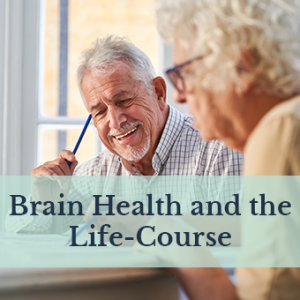Presenter(s):
Sinethemba Makanya, University of Johannesburg, South Africa
Abstract
In South Africa, abelaphi bendabuko are vital to the healthcare ecosystem, serving up to 80% of the population, especially in marginalized and rural communities. Yet, when it comes to neurocognitive disorders, such as Alzheimer’s disease and related dementias (ADRD), as well as conditions like Down syndrome (DS); the formal healthcare system often operates independently of indigenous knowledge systems. The FUNDISA project (Framework for Understanding Neurocognitive Disorders via Indigenous Systems in South Africa) aims to bridge the gap between knowledge systems. It is developing a culturally grounded framework and lexicon that integrates both biomedical and indigenous approaches to cognitive and developmental health.
This presentation will offer a critical perspective on why the inclusion of abelaphi bendabuko is not only essential but transformative for ageing and dementia care in South Africa. These misrepresentations have marginalized indigenous perspectives and created barriers to timely diagnosis, care, and support. By genuinely engaging abelaphi bendabuko, we aim to move beyond pathologizing indigenous systems and towards a more collaborative, culturally coherent model of care.
The FUNDISA project employs principles from participatory action research, bringing together abelaphi bendabuko and medical doctors (MDs) who work across knowledge systems. Through interviews, focus groups, and mixed-methods analysis, we are collaboratively building a lexicon that reflects indigenous understandings of memory loss, cognitive change, and intellectual disability. This approach moves away from imposing external biomedical terms that may lack cultural resonance. This new lexicon and framework will improve communication among healers, biomedical practitioners, researchers, and communities – supporting better diagnosis, treatment, and stigma reduction.
In this presentation, the central role of abelaphi bendabuko in supporting people living with ADRD and DS will be explored. Addressing dementia care in South Africa,and in other settings with pluralistic healthcare systems,requires intentionally valuing indigenous knowledge systems as partners rather than as “cultural barriers”. Including abelaphi bendabuko not only enhances cultural competence but also promotes greater trust, accessibility, and holistic support for individuals and families navigating cognitive ageing.
Early insights from the FUNDISA project on the challenges and opportunities of cross-system collaboration will be shared, including lessons on mutual respect, power-sharing, and the co-creation of knowledge. Finally, a proposal that frameworks like FUNDISA can serve as models for decolonizing ageing research globally will be shared, ensuring that efforts to address dementia in the Global South are rooted in community realities and strengths rather than external impositions.
In a rapidly ageing world, especially in contexts where biomedical infrastructure is uneven, culturally responsive and inclusive dementia care is not a luxury – it is a necessity. Recognizing and including abelaphi bendabuko is a key step toward building an equitable future for ageing populations across Africa and beyond.
Bio(s):
Sinethemba Makanya is an Inyanga specializing in psycho-spiritual diseases, mental health, and sexual reproductive health. She serves as a senior lecturer and head of the Art Therapy program in the Department of Visual Arts at the University of Johannesburg. Makanya holds a PhD in Psychology and Medical and Health Humanities from the University of the Witwatersrand and a Master’s in Drama Therapy from New York University. She has extensive experience lecturing in applied drama, drama therapy, drama in education, medical and health humanities, and health systems science. Her current research interests include embodied and creative approaches to healing and the potential of Indigenous Knowledge Systems to enrich and expand theoretical frameworks from the Global South.

